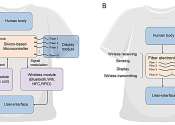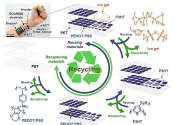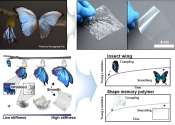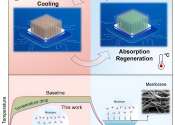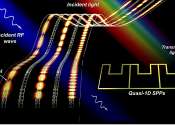Chipless fiber for wireless visual-to-digital transmission senses interactions with the human body
A team of materials scientists and engineers from Donghua University, in China, and the National University of Singapore, has developed a type of fiber that does not rely on chips or batteries to convert visual signals to ...
